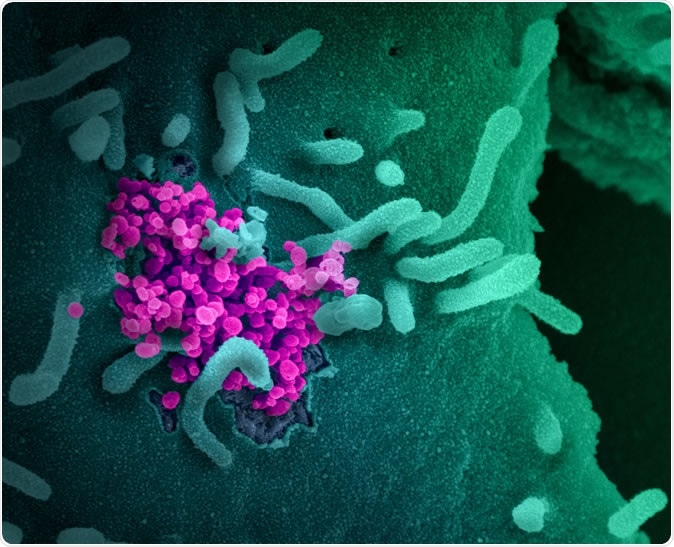Australia has seen an increase in coronavirus disease (COVID-19) cases, and this will continue for weeks despite strict border control measures, experts say. With 116 confirmed cases and thousands of people waiting to be tested, Australian hospitals could be overwhelmed by thousands of patients.
With this growing queue of patients, an expert predicts that the country’s health system will not be able to cope, just like other countries shaken by the epidemic, where cases have doubled every six weeks. At that rate, Australia can expect around 3,200 cases within one month.
The numbers
“The doubling time of the epidemic is six days,” Professor Raina MacIntyre, a biosecurity expert from the UNSW’s Kirby Institute, said.
“So, it’s going to get worse very, very quickly. If it becomes widespread, there is the potential for the health system to be overwhelmed,” MacIntyre added.
The fast spread of the coronavirus, which originated in Wuhan City, Hubei Province, in China, has negatively impacted many countries, in particular Italy, South Korea, and Iran. Italy has the highest number of cases outside mainland China with 10,149 infections and 631 deaths, an increase of 168 deaths, and nearly 1,000 confirmed cases in just 24 hours.
Iran trails behind with 8,042 cases and 291 deaths, while South Korea reported 7,755 cases and 54 deaths. Five new countries or territories reported their first cases of COVID-19, including Mongolia, Cyprus, Brunei Darussalam, Panama, and Guernsey.
Globally, there are 119,027 confirmed cases and 4,284 deaths at the time of writing. Though the number of cases is steadily increasing outside China, 65,761 people have recovered from the infection.

Novel Coronavirus SARS-CoV-2 This scanning electron microscope image shows SARS-CoV-2 (round magenta objects) emerging from the surface of cells cultured in the lab. SARS-CoV-2, also known as 2019-nCoV, is the virus that causes COVID-19. The virus shown was isolated from a patient in the U.S. Credit: NIAID-RML
Government warning
The Australian government has warned the general public that the increasing number of cases may soon start to affect government services negatively. Various government agencies have cautioned they may struggle to maintain services if the health crisis worsens.
The country has over 100 cases and three deaths related to COVID-19. New South Wales is the most affected, with 55 confirmed cases, Queensland and Victoria both with 18, South Australia with 7, Western Australia with 6, Tasmania with 2, and Northern Territory with 1.
Meanwhile, the government plans to allocate AUD$2.4 billion to help protect residents against the coronavirus. It is hoped this funding will ensure that the country is well-prepared if a full-blown outbreak ensues.
According to reports, the government is finalizing public service announcements, which will help disseminate information about COVID-19 and how to limit the spread of the infection through hygiene measures and what to do if symptoms arise.
Prime Minister Morrison said the health package was about preventing and treating coronavirus.
"We're ensuring our health system is well prepared and has the resources it needs for our fight against coronavirus," he said.
"Australia isn't immune but with this $2.4 billion boost, we're as well prepared as any country in the world."
Pop-up clinics
The government plans to allocate AUD $205 million for 100 ‘pop-up’ respiratory clinics across the country. Also called ‘fever clinics,’ these facilities are designed to reduce the pressure on general practitioner clinics and hospital emergency rooms.
Coronavirus: Australian update: Pop-up clinics, drive-through testing | Nine News Australia
Fever clinics will treat and manage patients with mild or moderate COVID-19 symptoms, so those who need critical or intensive care can remain unaffected at hospitals.
The fever clinics will have separate entrances for those manifesting symptoms of COVID-19. The chief medical officer of Australia, Brendan Murphy, announced the new precaution and has informed all general physicians in the country.
“The idea is to keep potential cases away from the general community,” Murphy added.
Drive Through
Australia has also adopted the idea of drive-through testing stations. The country’s first drive-through COVID-19 testing station is now operational in Adelaide.
Patients drive through the site, wind down their windows, and are then tested through their car window by pathology nurses taking a throat swab. The measure is effective in supporting isolation, especially those patients with respiratory infections. Further, it will protect front line health workers from being infected with the virus.
One patient can be tested every 20 minutes. The testing center is in the Repatriation Hospital in Adelaide’s south.
Expert’s work cited in U.S. press briefing
A medical epidemiologist at the University of Newcastle in Australia, Craig Dalton, has inspired the Trump administration’s coronavirus response. Dalton’s work was highlighted in a televised White House press briefing by Deborah Birx, the U.S. coronavirus response coordinator, and Anthony Fauci, head of the National Institute of Allergy and Infectious Diseases.
The health officials described a new set of guidelines that the government would want to disseminate as part of its effort to curb the spread of COVID-19, which has infected nearly 1,000 Americans and killed 31 people.
His paper has been cited by health officials in the U.S. as the basis of its new public information campaign, which highlighted cost-effective and straightforward ways to stem the outbreak, including precautions such as not shaking hands, using hand sanitizers, opening windows in tight spaces, and putting signs on doors saying “Welcome if you are well”. Further, the paper suggested schools and workplaces shut down temporarily and let people work at home.